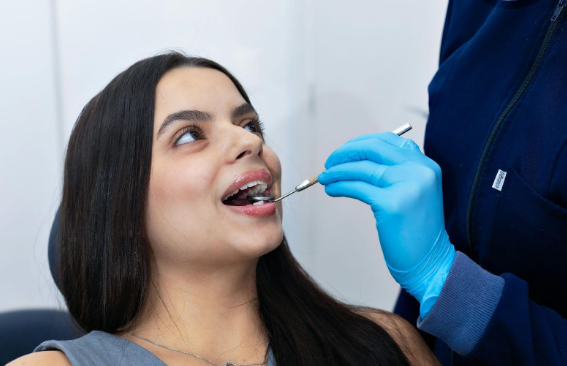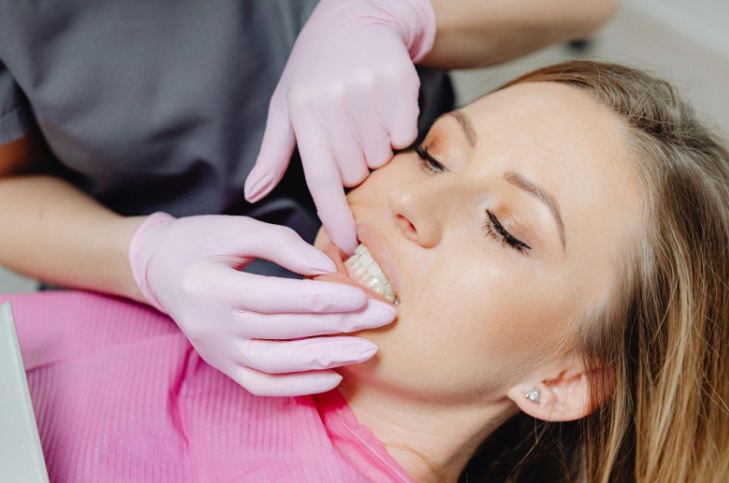Everything You Need to Know About Tooth Extractions
Everything You Need to Know About Tooth Extractions

No one likes the thought of having a tooth extracted, but sometimes it's necessary for the health of your mouth. If you're facing a tooth extraction, you may have questions about the procedure and what to expect.
Read on as we cover everything you need to know about tooth extractions, from the reasons why they may be necessary to the recovery process.
What Is Tooth Extraction and Its Process?
Tooth extraction is a dental procedure that involves the removal of a tooth from its socket in the jaw bone. A tooth extraction may be necessary for a variety of reasons, including severe decay, damage, infection, or overcrowding. Tooth extraction is typically performed by a dentist or oral surgeon and is done under local anesthesia to minimize pain.
The tooth extraction process can vary depending on the reason for the extraction, the location of the tooth, and the patient's overall dental health. Here is a general overview of what to expect during a tooth extraction:
Preparation
Before the extraction, the dentist or oral surgeon will review the patient's medical history and take any necessary X-rays to assess the tooth's position and the surrounding bone. If the tooth is impacted or located in a hard-to-reach area, the dentist may need to make an incision in the gum tissue to access the tooth.
Anesthesia
Local anesthesia is typically used to numb the area around the tooth and minimize pain during the procedure. Depending on the patient's anxiety levels, the dentist may also offer sedation options to help them relax during the procedure.
Extraction
Once the anesthesia has taken effect, the dentist will use specialized tools to loosen the tooth from its socket and remove it. Depending on the tooth's location and condition, the dentist may need to use forceps to extract the tooth or perform a surgical extraction that involves cutting the tooth into pieces before removing it.
Aftercare
After the tooth has been extracted, the patient will need to follow certain aftercare tips such as biting down on a piece of gauze to stop the bleeding. The dentist will provide instructions for caring of the extraction site including avoiding solid foods, using ice packs to reduce swelling, and taking pain medication as needed.
In some cases, the dentist may recommend replacing the extracted tooth with a dental implant, bridge, or denture to restore the patient's bite and prevent neighboring teeth from shifting. It's important to follow the dentist's instructions for aftercare to minimize the risk of complications such as infection or dry socket.
When Is Tooth Extraction Necessary?
Although dentists will generally try to save a damaged or decayed tooth through other means, such as fillings, crowns, or root canals, sometimes a tooth extraction is necessary. Here are some common reasons why tooth extraction may be necessary:
Severe Decay
When a tooth is severely decayed, damaged, or infected, the dentist may not be able to save it through other means. In this case, the tooth may need to be extracted to prevent further damage to the surrounding teeth and gums.
Overcrowding
Sometimes, teeth may become overcrowded, especially in the case of wisdom teeth, which can cause pain and other oral health problems. In this situation, the dentist may recommend removing one or more teeth to make room for the remaining teeth.
Periodontal Disease
Periodontal disease, also known as gum disease, can cause the gums to recede and the teeth to loosen. In severe cases, the teeth may need to be extracted to prevent further damage to the gums and surrounding teeth.
Impacted Teeth
When a tooth is impacted, it means that it has not fully emerged from the gum line and is causing pain or infection. In this case, the dentist may recommend extracting the tooth to prevent further complications.
Orthodontic Treatment
In some cases, orthodontic treatment may require the removal of one or more teeth to create space and properly align the remaining teeth.
Preparation for Tooth Extraction
Here are some steps that you can take to prepare for tooth extraction:
Consult with Your Dentist
Before undergoing any dental procedure, it's important to consult with your dentist. They will evaluate your oral health and medical history, and discuss the reasons why tooth extraction may be necessary. They will also explain the procedure, its risks and benefits, and answer any questions you may have.
Provide Your Medical History
Inform your dentist about any medical conditions or medications you are taking. Certain medical conditions, such as heart disease, diabetes, or autoimmune disorders, may require special precautions before and after the tooth extraction. Additionally, some medications may increase the risk of bleeding, so your dentist may need to adjust your medication regimen before the procedure.
Follow Pre-Operative Instructions
Your dentist will provide you with pre-operative instructions to follow in the days leading up to the tooth extraction. This may include avoiding solid foods for several hours before the procedure, stopping certain medications, and arranging for someone to drive you home afterward.
Wear Comfortable Clothing
On the day of the procedure, wear comfortable, loose-fitting clothing that will allow you to relax and move freely. Avoid wearing jewelry, contact lenses, or eyeglasses, as these items may need to be removed during the procedure.
Arrange for Post-Operative Care
After the tooth extraction, you will need to rest and recover for several hours. Arrange for someone to drive you home and stay with you for a few hours until the effects of the anesthesia wear off. You may also need to take time off from work or school to rest and recover.
Follow Post-Operative Instructions
Your dentist will provide you with post-operative instructions to follow after the tooth extraction. Be sure to follow these instructions closely to minimize the risk of complications and promote healing.
Tooth extractions can be a daunting prospect, but knowing what to expect can help ease your fears. Whether you're facing an extraction due to decay, damage, or overcrowding, it's important to take good care of your mouth during the recovery process. If you're in need of a tooth extraction or any other
dental services, contact
Patriot Family Dental. Our experienced and friendly team is dedicated to providing top-notch care for all of your dental needs. Don't wait any longer to take care of your oral health,
contact us today!











